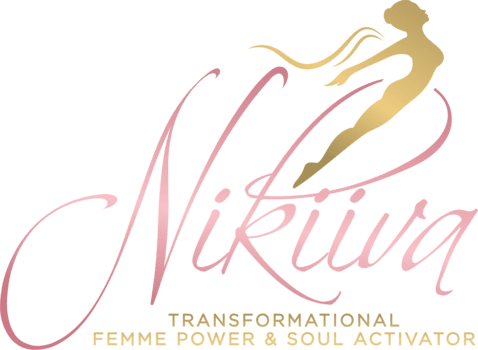Forgiveness is one of the most powerful tools for personal and emotional healing. It is a deliberate act of letting go of resentment, anger, and the desire for revenge toward someone who has wronged you. While forgiveness is often misunderstood as condoning the harmful act or forgetting the pain, it is, in reality, a deeply transformative process that benefits not only the forgiver but also the broader dynamics of human relationships. The power of forgiveness lies in its ability to heal emotional wounds, restore inner peace, and unlock the potential for personal growth and freedom.
In this article, we will explore the profound impact of forgiveness on the human experience, the misconceptions surrounding it, the process of forgiving, and how it can create meaningful change in our lives.
________________________________________
1. Understanding Forgiveness: What It Is and What It Isn’t
Forgiveness does not mean condoning harmful behavior, forgetting the pain inflicted, or reconciling with the offender if doing so would jeopardize your well-being. Instead, forgiveness is an act of self-liberation. It is the choice to release the hold that anger and resentment have over you, allowing you to reclaim your peace of mind.
Forgiveness is also not a sign of weakness; it takes incredible strength and courage to face your pain, acknowledge your emotions, and choose to move beyond them. It is an intentional decision to detach your identity from the hurt and not allow the past to define your present or future.
________________________________________
2. The Emotional and Psychological Impact of Forgiveness
The emotional and psychological benefits of forgiveness are vast and well-documented. Holding onto anger, resentment, and bitterness often leads to stress, anxiety, depression, and even physical ailments. Forgiveness acts as a remedy for these issues, promoting mental clarity and emotional well-being.
Healing Emotional Wounds
When we are hurt by someone, the emotional pain can linger for days, months, or even years. By forgiving, we allow ourselves to heal. Forgiveness shifts the focus away from the offender and toward our own recovery. It helps to sever the emotional tether that keeps us tied to the pain of the past.
Reducing Stress and Anxiety
Carrying resentment is like carrying a heavy burden—it drains our energy and clouds our thoughts. The act of forgiving can significantly reduce stress and improve mental health. Studies show that people who practice forgiveness experience lower levels of cortisol, the stress hormone, and are better equipped to handle life’s challenges.
Boosting Happiness and Inner Peace
Forgiveness restores emotional balance and promotes feelings of happiness and contentment. When you let go of negative emotions, you create space for positivity and joy to flourish. It brings a sense of freedom, as you are no longer controlled by the weight of your grievances.
________________________________________
3. The Physical Health Benefits of Forgiveness
Surprisingly, forgiveness not only heals the mind and soul but also has tangible effects on the body. Unresolved anger and bitterness can take a toll on physical health, leading to issues such as high blood pressure, heart disease, weakened immunity, and chronic pain. Forgiveness, on the other hand, has the opposite effect—it fosters physical well-being.
Lowering Blood Pressure
Letting go of anger and resentment reduces the strain on the cardiovascular system. Studies have shown that forgiving people tend to have lower blood pressure and better heart health.
Boosting Immune Function
Chronic stress caused by unresolved anger can weaken the immune system, making the body more vulnerable to illness. Forgiveness helps reduce stress, thereby boosting the body’s ability to fight off infections and maintain overall health.
Improving Sleep
People who hold grudges often struggle with sleep disturbances caused by racing thoughts and unresolved emotions. Forgiveness promotes relaxation and peace of mind, leading to better quality sleep.
________________________________________
4. Forgiveness as a Tool for Personal Growth
Forgiveness is not just about healing; it is also about growth. By forgiving, we learn important lessons about ourselves, others, and life in general. It strengthens our capacity for empathy, compassion, and resilience.
Building Empathy
When we forgive, we often gain a deeper understanding of the human condition. This may include recognizing that everyone is flawed and capable of making mistakes. Forgiveness fosters empathy, allowing us to see beyond someone’s actions and understand the struggles that may have contributed to their behavior.
Developing Emotional Resilience
Forgiving someone who has hurt you is not an easy task. It requires introspection, emotional regulation, and the ability to confront pain head-on. Through forgiveness, we develop emotional resilience—the ability to bounce back from adversity and grow stronger.
Finding Meaning in Pain
Forgiveness often transforms pain into purpose. Many people find that their journey of forgiveness inspires them to help others who are experiencing similar challenges. It allows us to turn a difficult experience into a source of wisdom and strength.
________________________________________
5. Forgiveness in Relationships
Relationships are inherently imperfect because they involve imperfect people. Conflict, misunderstandings, and hurt feelings are inevitable in any close relationship. Forgiveness, however, is the glue that holds relationships together and allows them to thrive.
Restoring Trust
When someone we care about betrays us, it can feel like the foundation of the relationship has crumbled. Forgiveness does not automatically restore trust, but it lays the groundwork for rebuilding it. By forgiving, we signal a willingness to move forward and give the relationship a chance to heal.
Strengthening Bonds
Forgiveness allows relationships to survive and even grow stronger after conflict. It demonstrates maturity, emotional intelligence, and a commitment to maintaining the connection. In the process, both parties learn how to navigate challenges more effectively.
Setting Healthy Boundaries
Forgiveness in relationships does not mean tolerating repeated harm or toxic behavior. True forgiveness often involves setting boundaries to protect yourself while maintaining compassion for the other person. Boundaries ensure that forgiveness is not equated with enabling hurtful actions.
________________________________________
6. The Spiritual Dimension of Forgiveness
Many spiritual and religious traditions emphasize the importance of forgiveness. It is seen as a path to enlightenment, peace, and divine connection. For those who practice spirituality, forgiveness can be a profound act of faith and surrender.
Letting Go of Ego
Forgiveness challenges the ego, which thrives on feelings of self-righteousness and vengeance. By forgiving, we transcend the need to be “right” or to retaliate, allowing us to connect with a higher sense of purpose.
Cultivating Gratitude
Forgiveness shifts our focus from what we have lost to what we still have. It fosters gratitude for the lessons learned, the support received, and the resilience developed through the experience.
Experiencing Liberation
In many spiritual teachings, forgiveness is described as a form of liberation. It frees the soul from the chains of anger, hatred, and resentment, allowing us to live in alignment with our highest values.
________________________________________
7. The Process of Forgiving
Forgiveness is a journey, not a destination. It is a process that unfolds in stages and requires patience, self-compassion, and determination.
Acknowledging the Hurt
The first step in forgiveness is acknowledging the pain you have experienced. This involves being honest with yourself about how the event has affected you emotionally, mentally, and physically.
Choosing to Forgive
Forgiveness is a conscious decision. It begins with the desire to let go of anger and resentment, even if you don’t feel ready to do so immediately. The intention to forgive is often the most important step.
Releasing Resentment
This stage involves actively working through your emotions and finding ways to release resentment. This may include journaling, therapy, or practicing mindfulness and meditation.
Finding Closure
Forgiveness does not always require reconciliation with the offender, but it does require closure within yourself. This may involve redefining the meaning of the experience and choosing to move forward with peace.
________________________________________
Conclusion
Forgiveness is one of the most powerful acts of self-liberation and healing. It is not about erasing the past or excusing harmful behaviours; it is about reclaiming your peace, finding inner strength, and creating space for joy and growth. By choosing forgiveness, we free ourselves from anger and resentment, allowing us to live fuller, more meaningful lives. The journey of forgiveness is not easy, but it is profoundly rewarding, offering emotional healing, physical well-being, and the opportunity to grow into the best version of ourselves.

10 Steps to Manifest Your Desires and Create a Life That Feels Aligned
Manifestation isn’t about forcing, chasing, or hustling. It’s about becoming the energetic match to





